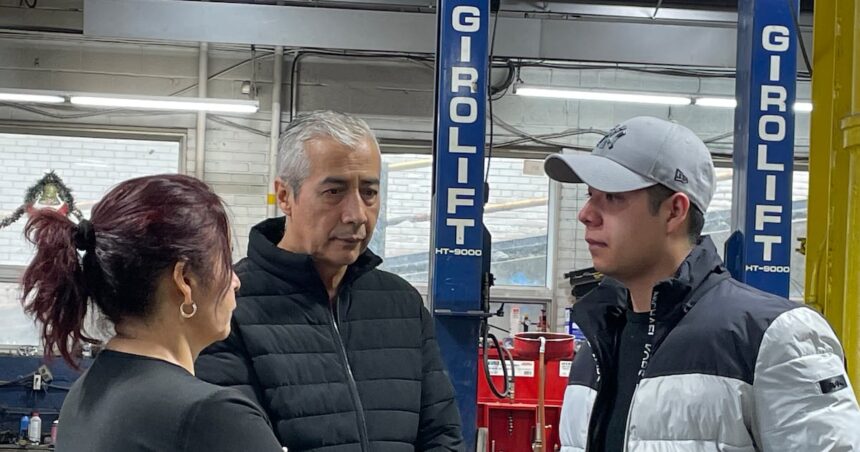As I sit in my sun-drenched office overlooking Rue Saint-Catherine, the story of the Mezdar family weighs heavily on my mind. This morning, I interviewed Sami Mezdar, his eyes reflecting both exhaustion and determination as he described his family’s situation. After building a life in Montreal for six years, the Mezdar family received devastating news – they must leave Canada within three weeks.
“Everything we have built is here,” Sami told me, his voice catching slightly. “My children speak French better than Arabic now. This is the only home they truly know.”
The family arrived from Algeria in 2018, seeking refuge from political instability. While waiting for their refugee claim to be processed, they’ve become deeply integrated into Montreal’s fabric. Their two children, aged 8 and 12, attend local schools. Sami works in IT while his wife Amina volunteers with community organizations. Their refugee claim was recently rejected, triggering the deportation order.
Immigration lawyer Marie Bellerose, who I’ve consulted with on numerous similar cases, explains that such situations have become increasingly common. “The immigration system is backed up with applications. Sometimes truly deserving cases fall through procedural cracks,” she noted during our conversation yesterday.
The Mezdar family’s plight reflects a growing trend in Montreal’s immigration landscape. According to data from Immigration, Refugees and Citizenship Canada, deportation orders increased by 23% last year in Quebec. Behind each statistic is a family like the Mezdars, caught between bureaucracy and their hopes for safety.
Community support has rallied around the family. Their children’s school has organized a petition gathering over 2,000 signatures so far. I witnessed students creating handmade signs yesterday afternoon, their young faces serious as they carefully printed “Let Them Stay” in both official languages.
The family has filed a last-minute humanitarian and compassionate grounds application. These applications consider factors beyond refugee criteria – including establishment in Canada, children’s best interests, and hardship if returned.
“The odds aren’t great,” admitted immigration consultant Jean Tremblay when I called him this morning for perspective. “But we’ve seen miracles happen when community support is strong.”
In my fifteen years covering Montreal’s immigration stories, I’ve watched families celebrate permanent residency and others board planes after final appeals failed. The uncertainty these families endure creates invisible wounds that I’ve observed firsthand in my reporting.
The Mezdar children represent a particular concern. Child psychologist Dr. Sophie Rousseau told me, “Uprooting children from the only stable environment they know can cause lasting trauma. They’ve already experienced displacement once.”
Walking through Villeray yesterday where the family lives, neighbors spoke of the Mezdars with genuine affection. Their local dépanneur owner, Michel Thibault, mentioned how Sami always helps shovel snow for elderly residents in winter. “These are exactly the kind of people we should want to keep,” he said, shaking his head.
Federal deportation statistics indicate approximately 12,000 people were removed from Canada last year, many from Quebec. Immigration Minister Marc Miller recently acknowledged system challenges but maintained that rules must be followed while improvements are implemented.
The case highlights tensions in our immigration system – between procedural strictness and humanitarian considerations. As Montreal continues welcoming newcomers, stories like the Mezdars remind us of the human stakes behind policy debates.
Community organizer Fatima Bensouda has planned a rally this weekend. “We’re not giving up,” she told me as we sat in a café near Jarry Park. “This family deserves a chance to complete their Canadian story.”
For now, the Mezdars wait, caught between packing their belongings and hoping for intervention. Their living room walls still display their children’s artwork and school certificates – small testaments to lives built here over six hopeful years.







